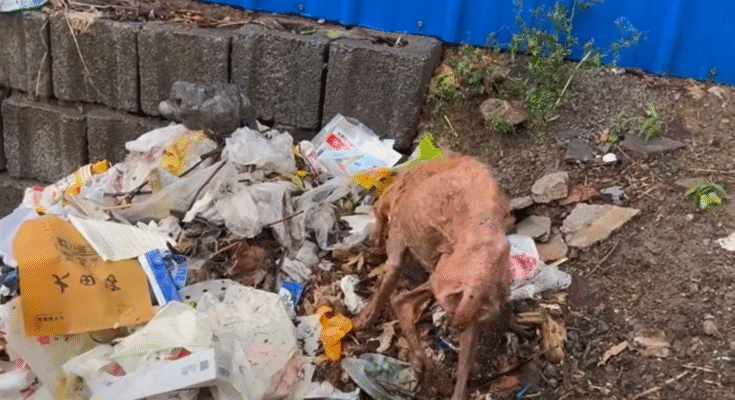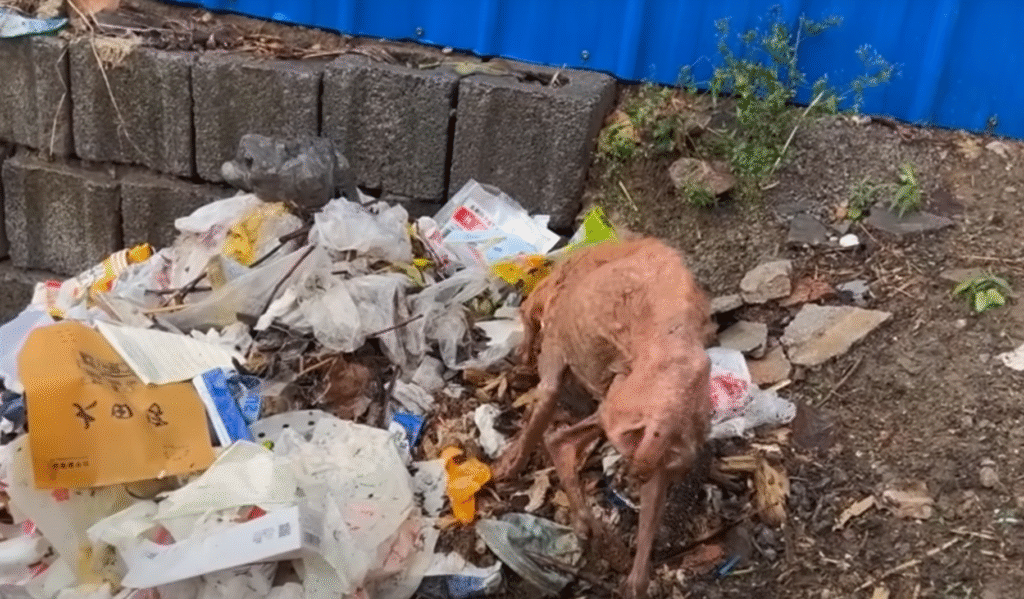
Rain poured relentlessly over the city, turning streets into rivers and filling alleys with puddles that reflected the dull glow of streetlights. Amid the storm, she huddled under a torn cardboard box, soaked to the bone. Her clothes clung to her frail body, and every gust of wind made her shiver uncontrollably. Hunger gnawed at her insides like a relentless predator, sharper and more painful than the cold that enveloped her.
Her name was Mia, though for weeks, she had almost forgotten it herself. The world had reduced her to survival, stripped her of dignity, and left her wandering the streets like a ghost. She had no home, no family, and no one to turn to. Her body, once healthy and strong, was now fragile and broken from weeks of neglect.
The Hunger
She had been searching for food for hours, rifling through discarded trash bins, hoping for something that could sustain her for even a few moments. Every scrap she found—a half-eaten sandwich, a stale crust of bread—was a victory, a small reprieve from the gnawing emptiness inside her. But the rain had washed away most of her options, leaving her desperate, trembling, and almost hopeless.
It was then that she saw it: a crumpled, colorful piece of plastic lying among the trash. In her starving state, in her soaked and broken confusion, her mind betrayed her. The plastic looked vaguely like a candy wrapper, a morsel of sweetness that promised relief. Without thinking, she brought it to her lips.
The cold, hard texture hit her tongue, and her stomach churned—not with satisfaction, but with the realization that she had mistaken plastic for food. She gagged, but she was too weak to spit it out immediately. She swallowed it anyway, a small, desperate act of survival that encapsulated her brokenness and despair.
A Fight for Survival
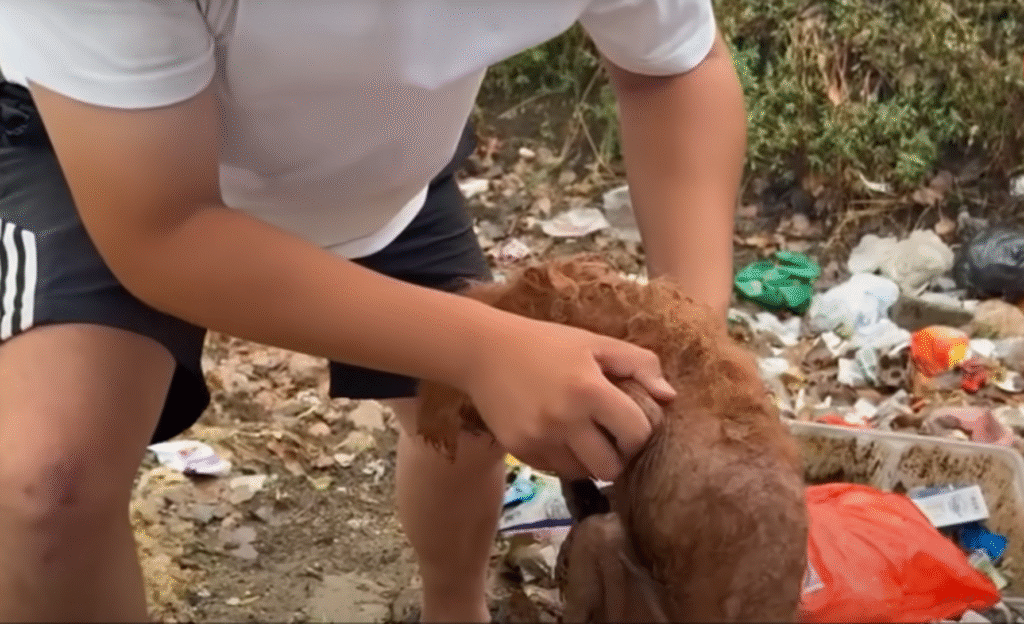
Mia collapsed against a wall, the rain soaking her further, her teeth chattering uncontrollably. Her mind raced with confusion and fear. Every sound—the patter of raindrops, the distant rumble of traffic, the drip of water from a leaking gutter—felt amplified, threatening. But hunger was louder. Hunger had become her master.
She reached for whatever scraps she could find, desperate to fill the emptiness inside her. Bits of paper, discarded wrappers, anything that seemed edible were sniffed, examined, and sometimes bitten. Her body had become conditioned to desperation, to survival at any cost, and the distinction between real food and trash blurred in her exhausted mind.
Her hands were scraped and bloody from rummaging through sharp edges, but she ignored the pain. Her stomach growled incessantly, a reminder that the human body could only endure so much neglect before it faltered entirely.
The Breaking Point
Hours passed like years. Mia was cold, wet, and starving, yet she refused to give up. Each step was a battle, each breath an effort, and her vision blurred with fatigue. Her once-bright eyes now seemed sunken, haunted by exhaustion and the relentless fight to survive.
Her legs finally gave out, and she collapsed in the corner of an alley. She curled up, wrapping her arms around her knees, shivering uncontrollably. Her stomach ached, her mouth dry, her body screaming for nourishment, for warmth, for safety.
For a long while, she lay there in the rain, soaked and broken, fighting the primal urge to give up. Her mind wandered to memories of meals she had once enjoyed, laughter around family tables, the smell of warm bread and fresh fruit. Those memories felt like another lifetime, distant and unattainable in her current misery.
A Chance Encounter
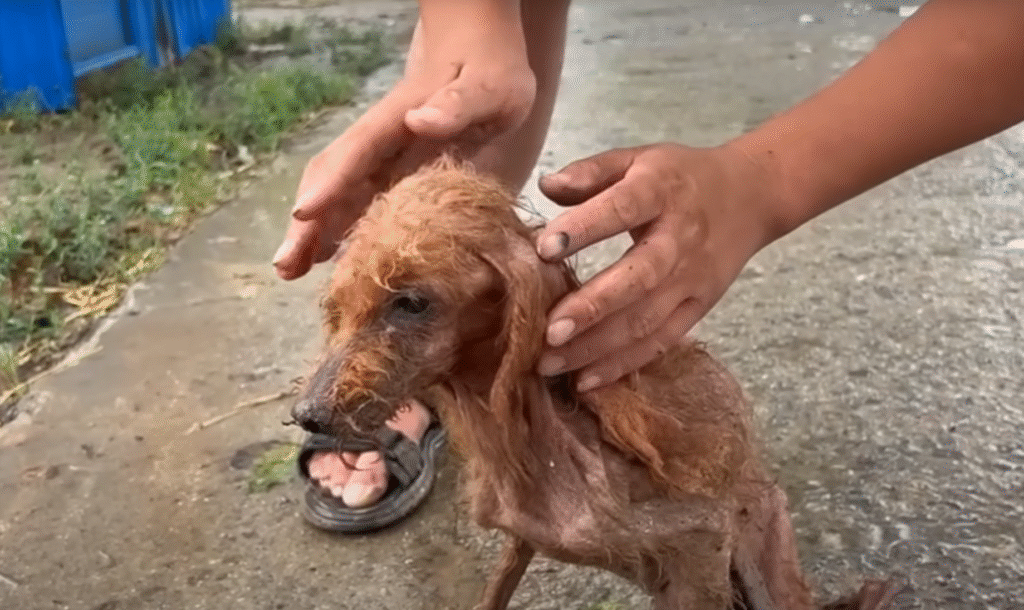
Just when her hope had dwindled to almost nothing, a shadow appeared at the end of the alley. A woman, umbrella in hand, moved carefully toward her. She was cautious but determined, recognizing the signs of someone in extreme distress.
“Hey… are you okay?” the woman asked softly. Her voice was calm, gentle, like a lifeline thrown into a stormy sea.
Mia tried to respond but only managed a weak croak. She was too cold, too weak, too hungry. The woman knelt beside her, offering warmth and a hand to hold.
“Don’t worry, you’re safe now,” she whispered, carefully wrapping her in a thick coat she had brought along. The warmth against her soaked skin felt foreign, almost unbearable in its contrast to the icy rain, but Mia clung to it like a lifeline.
Immediate Help
The woman, whose name was Clara, called for emergency services immediately. She spoke gently to Mia, encouraging her to stay awake, reassuring her that help was on the way. Mia’s teeth chattered violently, but the warmth and the kindness began to penetrate the fog of despair that had enveloped her for weeks.
When the ambulance arrived, paramedics carefully lifted Mia onto a stretcher, noting her severe dehydration, hypothermia, and malnutrition. The smell of the rain and alley still clung to her, but the bright lights of the ambulance felt like hope itself.
Hospital Care
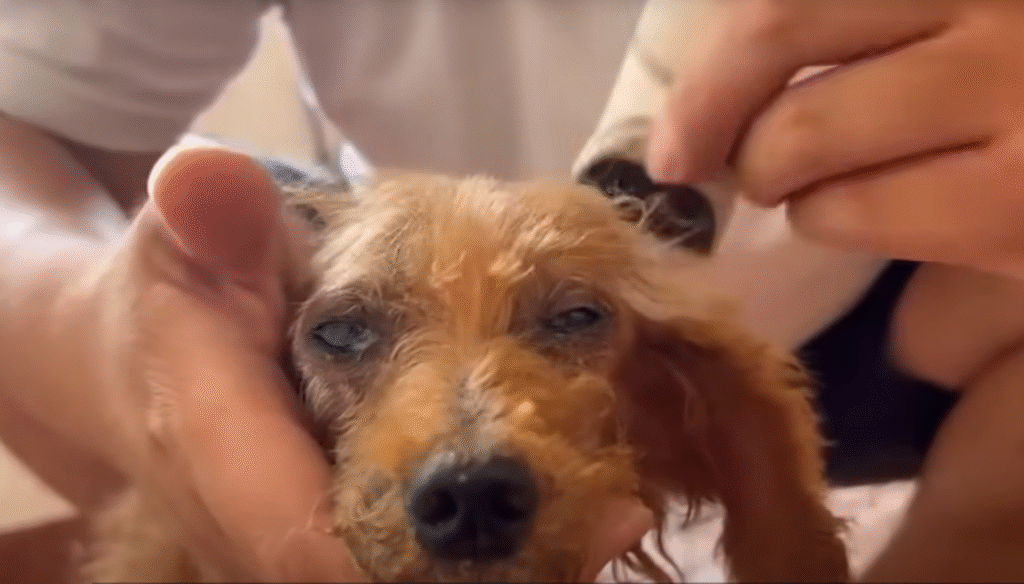
At the hospital, Mia was wrapped in blankets and placed in a warm room. Nurses monitored her vitals, administered fluids, and provided nourishment in small, manageable amounts. The bandages covering minor cuts and abrasions were replaced, cleaned, and dressed with care.
Though her body was healing, her mind still carried the trauma of starvation and neglect. Every sound, every sudden movement reminded her of the nights she had spent alone in rain-soaked alleys, scavenging for scraps of food, mistaking trash for sustenance.
Clara stayed with her, gently coaxing her to drink water, feeding her small pieces of bread, and offering reassurance that she was safe now. For the first time in weeks, Mia allowed herself to believe it.
Recovery
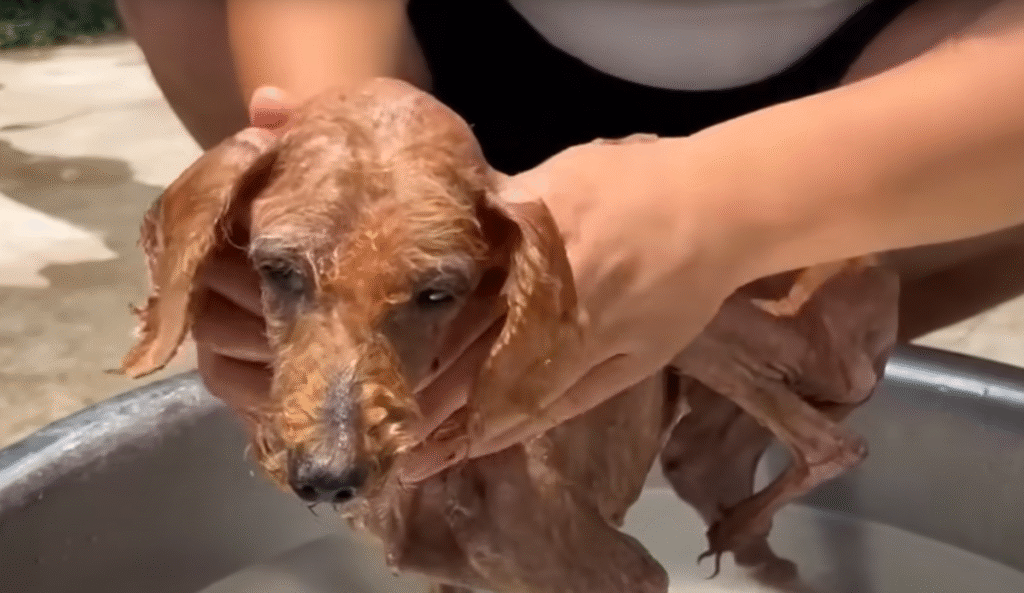
Days turned into weeks. Mia slowly regained strength, both physically and mentally. She learned to trust again, to accept food and care without fear. Her frail body began to fill out with proper nutrition, and the shivering that had haunted her nights subsided.
Yet, the memory of her desperation lingered. She would sometimes glance at discarded plastic or scraps of trash and feel a pang of fear and hunger she had known too intimately. Clara reminded her that survival had demanded extreme measures, but now she had a chance to heal.
Mia began to smile again, tentative at first, then with growing confidence. She laughed softly, a sound that had been foreign for too long. Her gratitude toward Clara, toward the paramedics, and toward the strangers who had noticed her suffering, became a driving force in her recovery.
Reflection
Mia often reflected on her darkest nights—the rain, the hunger, the cold, and the plastic she had mistook for food. Each memory was painful, yet it also served as a testament to her resilience. She had survived when all odds were stacked against her. She had endured the worst that neglect and starvation could offer, and she had come out alive.
“I was broken, but I’m not defeated,” she whispered one evening, watching the rain fall gently outside her window. “I was starving, but I’m not gone. I was soaked and alone, but I am here now. I survived.”
The experience left scars, but it also left strength. It taught her the fragility of life, the importance of compassion, and the undeniable human will to survive.
Conclusion
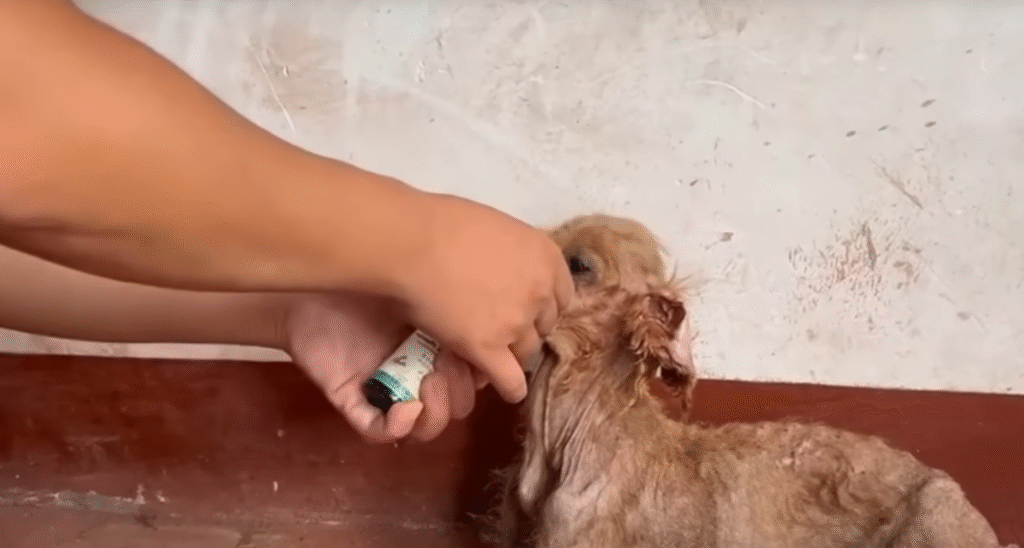
From the dark, rain-soaked streets where she mistook plastic for food, to the warmth and care of a hospital bed, Mia’s journey was one of unimaginable struggle and extraordinary survival. Soaked, starving, and broken, she fought tooth and nail to stay alive, refusing to surrender to despair.
Today, wrapped in blankets of safety, with nourishment in her hands and care surrounding her, she embodied resilience. Her story is a reminder that even in the most desperate situations, life can persist, hope can emerge, and survival is always possible.
And though she will never forget the hunger, the rain, or the cold, she now knows that even after the darkest storms, the warmth of compassion and the strength within can guide her to a future worth living.
